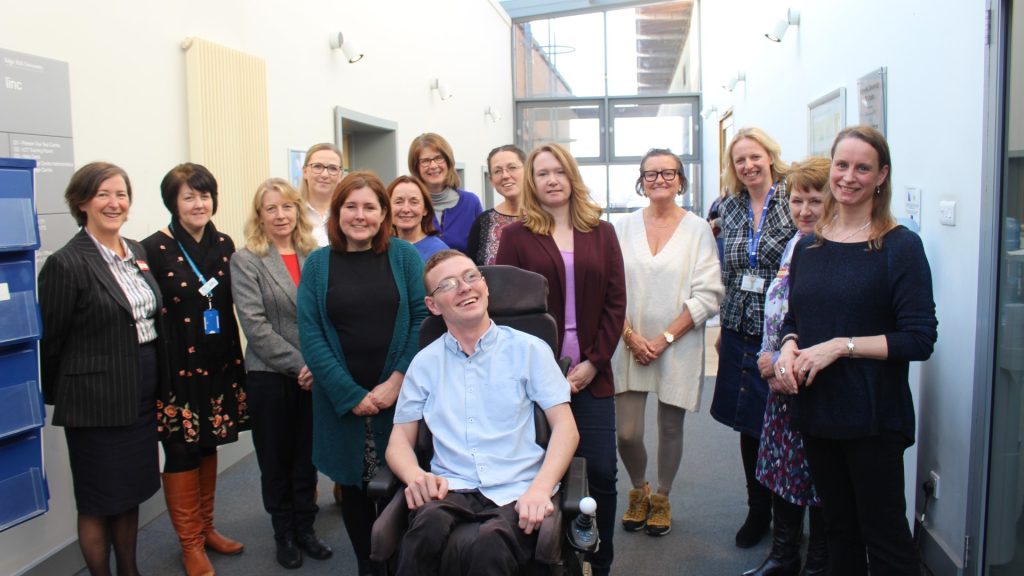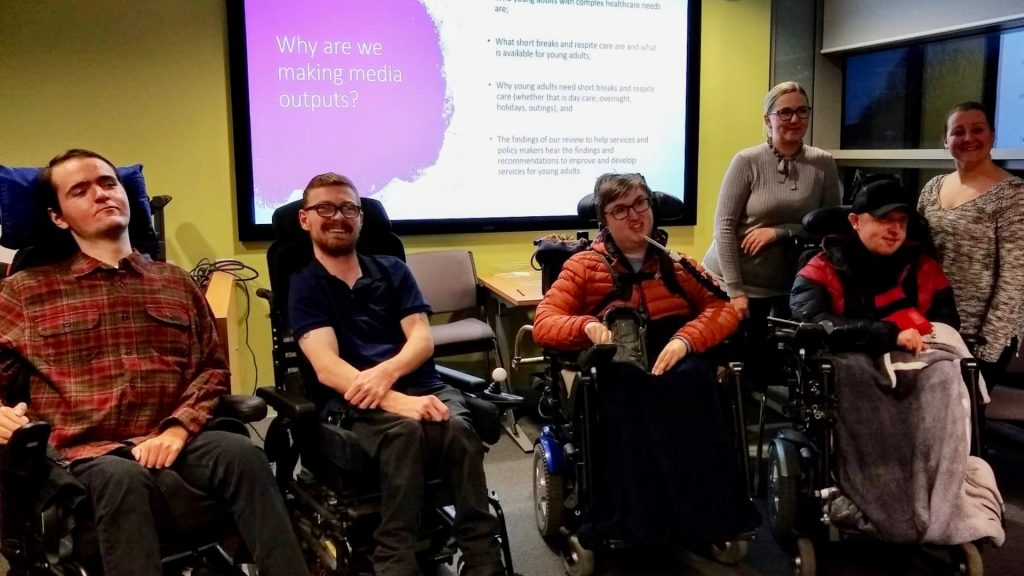Respite care and short breaks for young adults with complex healthcare needs
Researchers from Edge Hill University were funded by the NIHR Health Services and Delivery Research Programme (HS&DR) to investigate respite care and short breaks for young adults with complex healthcare needs due to a life-limiting condition and/or physical disability.
Led by Professor Sally Spencer and Dr Katherine Knighting, the research team includes staff from the Faculty of Health and Social Care, and externally from the University of Liverpool, Bangor University, Lancaster University, and the International Children’s Palliative Care Network.
What is the research about?
Children and young adults with life-limiting conditions and/or complex physical disabilities require high levels of complex healthcare, which is normally provided by their parents or carers with support from health and social care professionals. Respite care and short breaks for children with complex healthcare needs is typically provided through children’s hospices and other specially designed children’s services which benefits both the child and their family. However, there are differences in the provision of respite care for young adults with complex healthcare needs who are no often longer eligible for children’s services.
Our aim was to identify, characterise, and evaluate the provision of respite care for young adults aged 18-40 with complex healthcare needs due to a life-limiting condition and/or complex physical disability, and to develop a conceptual framework to inform future development and evaluation of respite provision.
What research methods are we using?
We conducted a mixed-methods systematic review. A systematic review is an established method of secondary research designed to locate, critically appraise, and synthesise the best available evidence (such as primary research studies) to provide unbiased, evidence-based answers to pre-determined research questions.
Mixed-method systematic reviews bring together different types of evidence (qualitative and quantitative studies, for example). We searched for four streams of evidence to include in our review: evidence relating to effectiveness; costs of respite care; experiences and attitudes; and relevant guidelines and policy.
The call for evidence has now closed but if you want to share any work on this important topic with the team please get in touch with Dr Katherine Knighting.
Prospero registration
PROSPERO 2018 CRD42018088780Publications and outputs
- Published protocol Pilkington et al 2019 Protocol_BMJ Open
- Published ‘First Look’ Summary of NIHR final report Nov 2020
Posters and newsletters
- Poster – Martin House Research Centre Conference MH Res Conference Sept 2018 Respite Care SReview
- Poster – Health Services Research UK Conference HSRUK_Poster June 2019
- Hospice UK & Together for Short Lives Transition Oct 2020
This project was funded by the National Institute for Health Research Health Services and Delivery Research Programme (project number 16/115/17). The views and opinions expressed therein are those of the authors and do not necessarily reflect those of the HS&DR Programme, NIHR, NHS or the Department of Health.
The study is guided by a Steering Group, and a Patient and Public Involvement (PPI) Advisory Group of young adults and parents, to ensure the research is relevant and well conducted.
Steering Group

We invited individuals with an in-depth knowledge of care for young adults with complex healthcare needs or the provision of respite care/short breaks, for example those with professional roles in commissioning or delivering services, clinical experts, and PPI Advisory Group members to be part of the Steering Group.
The primary purpose of the Steering Group was to advise the review team on all aspects of the systematic review, including the scope of the research, interpretation of results, and dissemination of the research findings. The Steering Group ensured that the systematic review was conducted in a robust and rigorous manner. There are two face-to-face meetings scheduled for 2018 – 2019, and there are opportunities to contribute via email/telephone. The Steering Group was chaired by Dr Katherine Knighting and Chris Browne, a young adult with complex healthcare needs from the PPI Advisory Group.
PPI Advisory Group (PAG)
Young adults and parents who supported the development of the study bid for funding continued working with the team. We also put out invitations via different routes including social media to invite other young adults with life-limiting conditions/complex physical disability, informal carers, and parents/guardians to join them and become a patient and public involvement PPI Advisory Group to help guide the research. The aim of the PAG was to ensure that the voices of those with experience of accessing respite and short break services, or challenges with accessing services, had input into the research process. The PAG members supported the study by sharing their experiences, knowledge and perspectives to help us develop search terms, identify evidence, validate and interpret the findings and develop the recommendations made in the final report.
To support this collaboration a range of communication methods were used which suited the individual needs of the group members. Face-to-face meetings were held at the University, with some members joining by Skype or telephone to facilitate group working and peer support within the group. Other members became part of an e-PAG group where our PPI lead (Dr Katherine Knighting) and other members of the team had individual communication with them via Skype or telephone to discuss the study and gather their views which could then be shared with the PAG and Steering Group.

The group are also working with the team to develop a short film of their experiences and key findings from the study. Separate film workshops were held to develop ideas, create video clips of those who wanted to be on camera, and agree the final cut of the film. The film will be made available via this website and social media once it is complete. The final stages have been affected by the current coronavirus situation but we hope to have it ready soon.